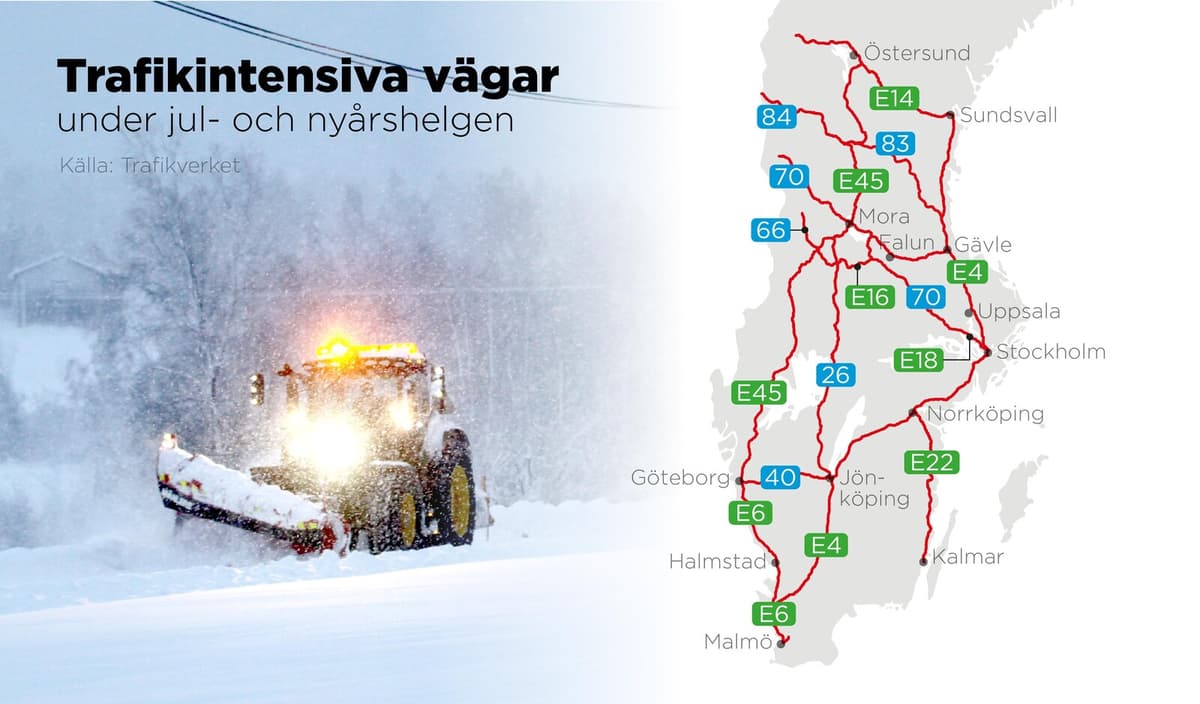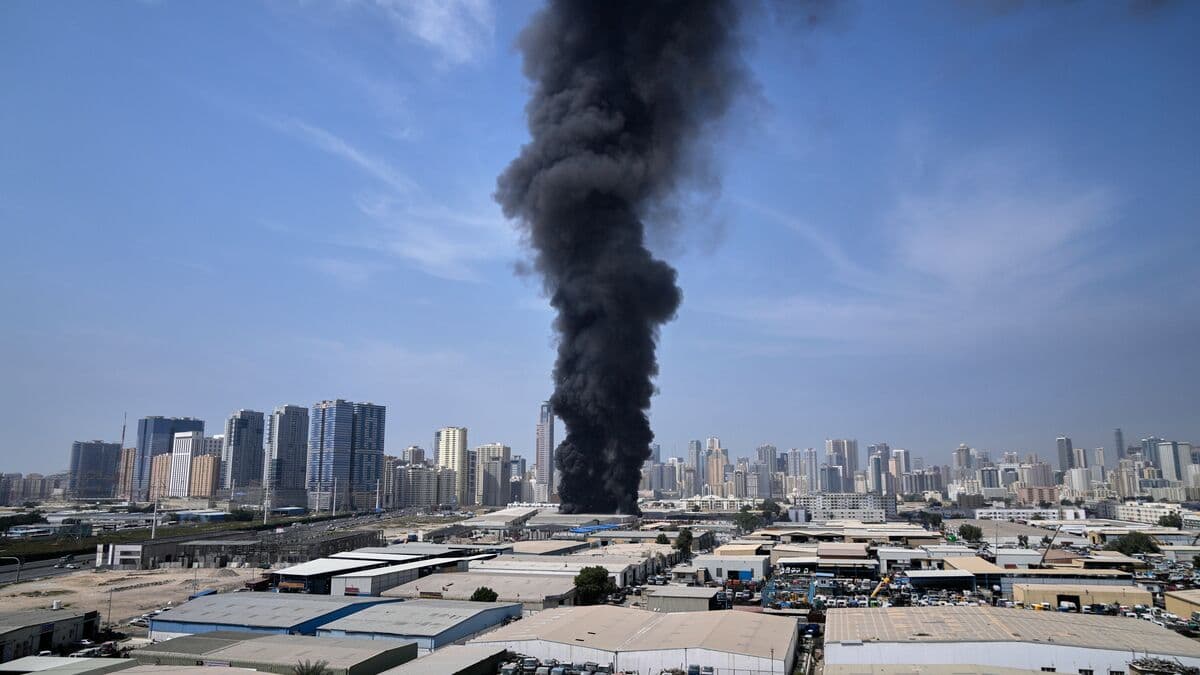Christmas and New Year's are two of the year's major travel periods where many drive long distances to visit family and friends and are out and about. During the last Christmas and New Year's holidays, five people died and over 3,700 people were injured in road traffic during the period, according to statistics from the Transport Agency.
According to the authority, an average of approximately 13 people die and nearly 3,000 people are injured every year during the period. However, it is not just car accidents on icy roads that cause accidents. 46 percent of those who were injured were pedestrians in single-vehicle accidents and the majority were fall accidents in traffic environments such as squares, roads, sidewalks, and pedestrian paths, according to the Transport Agency.
Wet Snow
This year's Christmas holiday falls so that car travelers can travel already on the weekend before Christmas Eve, or the day before, which is expected to thin out the pressure on the roads.
There is a precipitation area coming on Sunday in the southern and central parts of the country, possibly with snow in the south. The forecast is uncertain, but if it gets a few degrees colder, it can become difficult, says Emma Härenstam and continues:
On Monday, it can be rain or wet snow, and a risk of temperatures dropping rapidly. Then, wet roads can freeze.
She notes that the forecasts can change.
In this kind of weather, I think you should keep yourself extra updated on warnings.
"Be Extra Vigilant"
In terms of road conditions, it is the same road sections as "usual" that are expected to be the most heavily trafficked during the Christmas and New Year's holidays: the European highways in the south, E6, E4, and E22, but also national road 40 and 26. In the central part of the country, it is E45, E14, E16, and E18, as well as national roads to the mountains.
It can get tough when you have many so-called zero passages, where the temperature oscillates around zero, and that's what we have to expect in at least the southern half of the country, says Emma Härenstam and continues:
This is a year where you should take it cautiously and be extra vigilant.
Besides general legal things like not driving under the influence, using a seatbelt, not texting while driving, and keeping to the speed limit, the Transport Agency advises:
... plan your route and start in good time – during the major traffic holidays, it can take longer than usual.
... be well-rested and take regular breaks.
... keep a safe distance.
... bring extra warm clothing and something to eat and drink.
Source: Transport Agency






